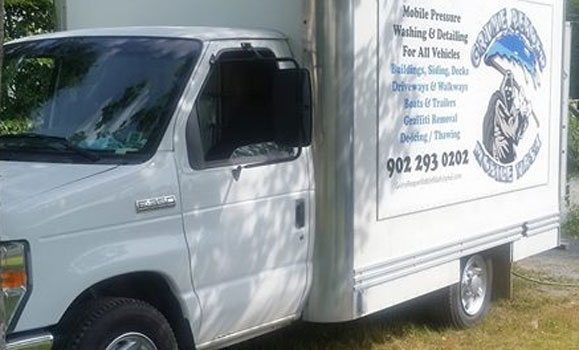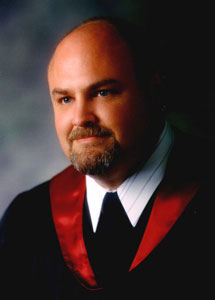News
» Go to news mainAlumni Outside the Box: Ian "Tay" Landry
Alumni Outside the Box is a regular column profiling FHP alumni who are using their health professions’ degrees in new or unique ways.

When you ask Ian Landry what the driving force behind his work is, he says: “I prefer to focus on people’s strengths rather than their deficits. What they can do, not what they can’t do.”
Ian, a graduate of HÂţ»â€™s social work program, is a full-time registered social worker and clinical therapist. When he’s not busy with his private practice, you’ll find him helping his son. The two established the Grime Reaper Mobile Wash and Detailing business, based in Eastern Passage, Nova Scotia.         Â
The idea for the business came to Ian when he noticed a car wash in Eastern Passage was closing down. He asked his son, Nic, if he would be interested in taking it over. Ian saw the Passage Car Wash as a way for Nic, who has a severe learning disability, to have employment with a liveable wage and independence. The end goal of the business was to hire other people with learning disabilities and pay them a fair, liveable wage.
Like many small business owners, the Landrys have had their ups and downs. A lack of appropriate commercial space in the area led to the closure of the Passage Car Wash in the winter of 2015. But from this experience, Ian and Nic launched the Grime Reaper Mobile Wash and Detailing.
“It has sort of been an evolution,” Ian laughs. The new business still focuses on cars, but also offers exterior house, deck, and driveway cleaning. Marketing and financial support are still struggles, but the business gives Nic more freedom and opportunities.
Viewing employment and business through a social work lens
Ian returned to university as a mature student and graduated from Dal with Master’s degrees in Social Work and Sociology. He was drawn to social work because it was more hands-on and community-based. He says with social work, school gives you the necessary foundation, but the actual learning happens after you graduate.
In Ian’s experienc e, people with severe learning disabilities mostly end up in labour jobs with poor wages.
e, people with severe learning disabilities mostly end up in labour jobs with poor wages.
“The model of hiring people with developmental issues is found all over the States,” Ian says, referencing a law firm that fills clerical positions with people with autism. “But in Canada, it’s hard to find. They just aren’t given the chance.”
Ian as a Dal grad (left)
At his practice, Ian works with people who have severe learning disabilities, chronic mental health issues, and those who have suffered abuse and addiction. “There is so little for this population [in terms of employment opportunities],” he says.
Driven by his commitment to civil rights and social action, Ian wants to see more effort to help people in these positions find work and financial independence.
“It’s always going to be a struggle, you’re going to have to jump through hoops," Ian says. “But you’re always learning, you’re always growing.”
ĚýĚýĚýĚýĚýĚýĚýĚýĚýĚýĚý
Recent News
- Belief in leadership: New Kinesiology course offers lessons from Lasso
- Two Dal Health graduate students heading to the 3MT finals
- Breaking the cycle: Rethinking substance use, stigma, and social inequities in Canada
- Top 10 Dal Health stories of 2024
- Cards for care: Semester three nursing students collect $1,600 for MOSH
- Master of Health Administration grad continuing cancer research in PhD in Health program
- SWAB‑Rx study aims to expand sexual health services in pharmacies
- Master of Science in Occupational Therapy grad passionate about sustainability in health‑care
